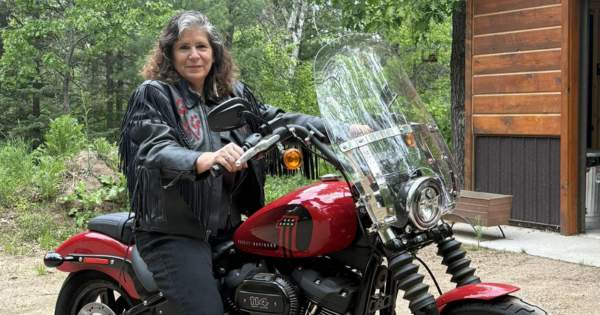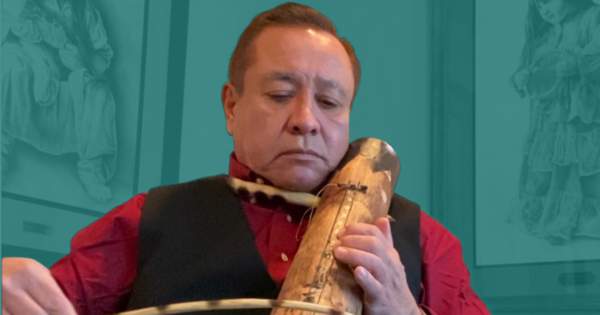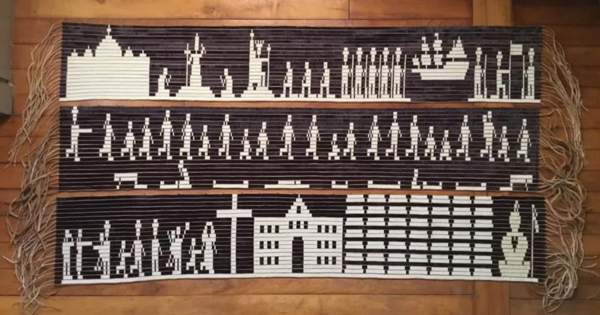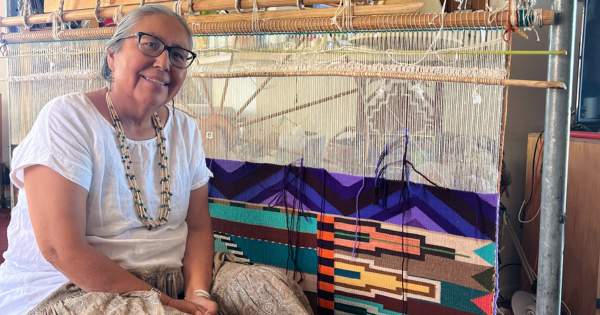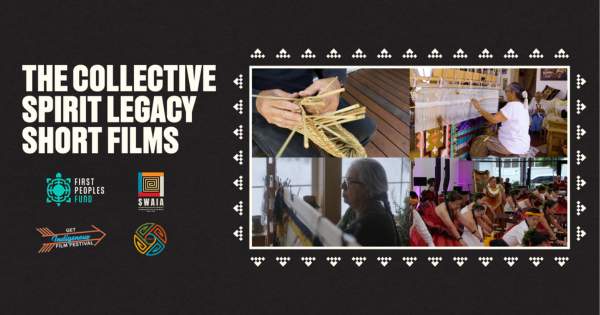
Pushing Through the Pandemic
In 2016, First Peoples Fund launched Rolling Rez Arts (RRA) to provide art and business workshops for artists and cultural bearers living on the Pine Ridge Reservation
Two years later in 2018, RRA hosted 80 in-person workshops that reached over 800 community members, due in part to the program’s unique approach: via a state-of-the-art mobile unit (which was featured on PBS Newshour).
The success of RRA’s mobile unit coincided with a 2018 groundbreaking ceremony for the Oglala Lakota Artspace (OLA), a reservation-based facility for Pine Ridge artists (and future homebase for RRA).
The mission of OLA is to offer a home base for comprehensive outreach services and arts programming to the Pine Ridge community through a partnership between Artspace, Lakota Funds, and First Peoples Fund. The facility was scheduled to open in 2020 but the COVID-19 pandemic unfolded, subsequently postponing OLA’s grand opening– twice.
Rolling Rez Arts, on the other hand, adapted its programming to serve Native communities when they needed art the most: during the uncertainty of a pandemic.
On The (Virtual) Road
Like many nonprofit organizations during the pandemic’s onset in 2020, First Peoples Fund quickly adapted in-person workshops and transformed them into virtual events using online resources, like Zoom, Facebook Live, and Youtube.
What helped RRA maintain its arts programming – now called On the Virtual Road with Rolling Rez Arts – were dedicated teaching artists like Cynthia Masterson (Comanche). Masterson taught a beading workshop last December on Zoom.
“I wanted to set up [workshop attendees] for success,” says Masterson, who is a bead artist and a 2019 Cultural Capital fellow at First Peoples Fund. “We need an easy win right now, as everything is so hard” for Native people.
As a result, Masterson taught students an introductory beading project that could be gifted during the holiday season. “Beads are just props that facilitate sharing an emotion,” says Masterson. “[Beading] is how we connect with somebody.”
But Masterson admits teaching virtual workshops is a learning process. “We were throwing spaghetti at the wall to see what sticks” during the first year of the pandemic, says Masterson. “But I think the pandemic was good for my teaching. Even though it's not ideal, I've connected with so many more people” due to the geographical reach and flexibility of virtual learning.
The Heart of RRA: Teaching Artists
In 2021, RRA curated over a dozen workshops covering an array of artistic disciplines, such as beading, fashion, and performance. Workshop titles included:
- Moccasin Making for Baby with V.R. Janis (Ojibwe)
- Creating Applique for Lakota Fashion and Dance Regalia with Helene Gaddie (Oglala Lakota)
- Learn How to Quillwork with Mary Lebeaux (Oglala Sioux)
- Rez Rap Crate Digging with Talon Bazille (Crow Creek Dakota, Cheyenne River Lakota)
- Matting and Framing Your Art by Wade Patton (Oglala Lakota)
Moreover, what drives the virtual success of RRA are the teaching artists themselves. “Every class was an exciting wealth of knowledge with a glimpse into the creative process and techniques used by professional working Native artists,” says Bryan Parker, Rolling Rez Arts Program Manager. “The idea is that classes will be the stepping stone to the more concentrated programming that will happen at the Oglala Lakota Artspace.”
The Road Ahead
In 2021, RRA extended its programming to support elders residing at the Lakota Sioux Nursing Home and on the Pine Ridge Reservation. “Elders will utilize pre-recorded videos from our artists and learn new skills,” says Parker.
“Our strength and knowledge come from our elders,” says Parker. “And it is our responsibility to continue to help pass on that knowledge and continue to celebrate Indigenous art and culture.”
The video series is the starting point for a long-term plan. “Our ultimate goal is for elders to participate at the Oglala Lakota Artspace [in-person],” says Parker. “The Oglala Sioux Tribe has restrictions on how many people can gather indoors [due to COVID-19], so we patiently wait for the ordinance to lift.”
Until then, the new video series keeps elders engaged in RRA programming safely in their homes.
In 2022, Parker hopes elders can participate in person. “I hope that [program] success is defined not only through gaining new skills and trying new mediums,” says Parker, “But that cultural stories are shared [to inspire] creative solutions to better serve the community,” which is the heart of Rolling Rez Arts’s legacy.

